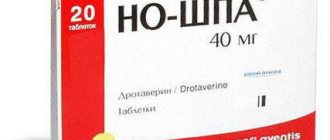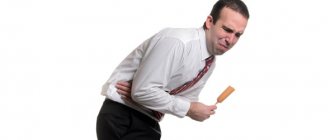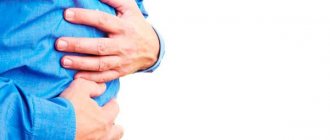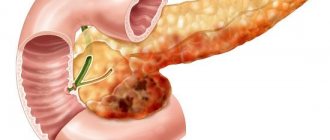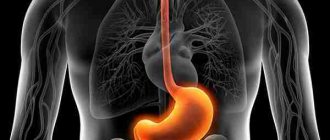Abdominal pain in children can have a variety of causes. There are pains caused by organic changes in the gastrointestinal tract. Abdominal pain can be caused by non-organic causes - these are functional disorders (colic in infants), psychosomatic pain, abdominal pain due to intolerance to any foods and, finally, abdominal pain that is not related to damage to the gastrointestinal tract (urinary tract infection , diabetes mellitus, enlarged mesenteric lymph nodes, spasm of mesenteric vessels, enlarged liver, spleen in hemoblastoses, and systemic diseases).
Abdominal pain associated with pathology of the gastrointestinal tract.
Acute abdomen is a state of catastrophe in the abdomen, characterized by severe pain, barely bearable, constant, aching or frequently recurring. This condition requires immediate medical attention!!! This picture is caused by appendicitis, cholecystitis, pancreatitis, suppuration of an ovarian cyst, bleeding into the abdominal cavity, intestinal obstruction, intussusception, peritonitis, and perforated gastric ulcer.
Alarm signals:
- Severe pain, the child cries and/or squirms;
- Persistence of pain for 2-4 hours, and even more so its increase;
- Feeling unwell, cold sweat, fainting;
- Confusion.
Before the doctor arrives, put the child to bed, do not disturb him or try to give him anything to eat or drink. REMEMBER: you cannot give painkillers (analgin, nurofen, paracetamol, efferalgan), offer the child a heating pad, an ice pack, laxatives, try to give an enema, all this can lead to a worsening of the child’s condition and, as they say, “blur the clinical picture,” thereby delay timely diagnosis and timely prescribed treatment.
Gastritis, stomach ulcer, gastroesophageal reflux. Gastritis is an inflammatory disease of the stomach wall, characterized by abdominal pain and dyspeptic disorders.
The etiological factor is often Helicobacter pylori infection.
Emotional lability (conflicts in the family, school, some kind of disaster, stressful situations), malnutrition, allergic processes predispose to the development of gastritis - all this leads to an increase in the acidity of gastric juice and creates favorable conditions for infection with the microbe Helicobacter pyloricus.
Most often, the pain syndrome is accompanied by dyspeptic disorders (nausea, belching, unstable stool, constipation). An important symptom is liver enlargement associated with stagnation of bile.
There are no symptoms of chronic intoxication and changes in other organs. Physical development corresponds to age. In some children, the main symptoms of the disease are liver enlargement without pain.
A good effect for improving well-being is provided by excluding too fatty, spicy, fried foods from the diet. The same applies to baked goods. Vegetable oil, on the contrary, increases bile secretion and is recommended to be consumed more often. If, in addition to the specified diet, you increase physical activity, this is often enough for recovery and well-being.
If diet and lifestyle changes are not enough, choleretic agents are used. Your doctor should recommend specific medications.
Enteritis, colitis (enterocolitis) is an inflammatory disease of the wall of the small and large intestines, characterized by abdominal pain and diarrhea syndrome.
Chronic colitis and enterocolitis are most often associated with acute infections. In this case, the pathogen that caused the disease has already lost its significance, and the dysfunction of the intestine is supported by those morphological changes that remain after the infection.
Symptoms of stomach pain
Children's stomach pains, what to do if everything in your child hurts
Children may exhibit additional symptoms. These include:
- lethargy, drowsiness;
- lack of appetite;
- Bad mood.
Depending on the pathology causing the pain, children may experience heartburn, constipation, fever, nausea and vomiting.
In medicine, there are several types of pain:
- aching;
- stupid;
- sharp.
The latter type is one of the most dangerous, as it manifests itself during the development of the inflammatory process of the intestines. Most often this is a sign of appendicitis or pancreatitis.
If sharp pain occurs, it is necessary to immediately show the child to a doctor.
The child complains of pain in the upper abdomen.
Peptic ulcer of the stomach and duodenum is an inflammatory disease that occurs with ulcerations of the mucous membrane of the stomach and duodenum. The causes and predisposing factors are the same as for gastritis.
With gastritis and peptic ulcers, gastroesophageal reflux often occurs - acidic gastric juice enters the esophagus, which is manifested by belching, pain in the stomach after eating, and heartburn.
With peptic ulcers, these symptoms are more pronounced.
Medicines for stomach pain in children
Any drug or medicine given to a child must be agreed upon with the attending physician. Self-medication in this case is prohibited, however, if a small child has a stomach ache and there are no accompanying symptoms in the form of diarrhea, vomiting and he has a normal temperature, the child is given 1/8 of drotaverine for pain. Very often there is a need to take Kolikid or Espumisan - these are drops that are given to the child before and after meals.
When your child gets sick or has abdominal discomfort, you should contact your pediatrician, who will then refer you to the right doctor. Possible specialists include a surgeon, gastroenterologist, and infectious disease specialist. Only against the background of laboratory data obtained, each of them can make a decision on the prescription of treatment.
There is a list of drugs on the pharmaceutical market that are approved and can be given to a child after a doctor’s prescription. Let's look at how to treat and how to treat stomach pain:
- First of all, a drug from the group of sorbents is used - it helps remove harmful toxins from the body. This could be Enterosgel, Mezim or Festal. Activated carbon has a good effect - give it based on the child’s body weight.
- For diarrhea, Linex or Lactovit are suitable, but if there is also bloating or colic in newborns, then the drug Espumisan is used.
- For vomiting, Regidron is used.
Alarm signals:
- Increased frequency and intensification of pain;
- Weight loss;
- Vomiting blood or coffee grounds.
In the treatment of gastritis and peptic ulcers, regular nutrition without overeating, the exclusion of irritating foods, the use of boiled, baked or lightly fried low-fat second courses, light dinners at least 2-3 hours before bedtime, the exclusion of sour juices and sweets are of great importance. The doctor prescribes an examination, diet and appropriate medications.
Diseases of the biliary system. Diseases of the biliary system in children, as a rule, are of microbial origin. Predisposing factors are a violation of the outflow of bile, which develops with dyskinesia of the biliary system.
Dyskenesia may be associated with dysfunction of the sphincter apparatus, blockage of the ducts or their compression. Subsequently, the presence of an inflammatory process in the ducts may be accompanied by a violation of the outflow of bile.
The contractility of the gallbladder is important.
The pain syndrome is usually accompanied by dyspeptic disorders (nausea, belching, unstable stool, constipation). An important symptom is liver enlargement associated with stagnation of bile.
There are no symptoms of chronic intoxication and changes in other organs. Physical development corresponds to age. In some children, the main symptoms of the disease are liver enlargement without pain.
A good effect for improving well-being is provided by excluding too fatty, spicy, fried foods from the diet. The same applies to baked goods. Vegetable oil, on the contrary, increases bile secretion and is recommended to be consumed more often. If, in addition to the specified diet, you increase physical activity, this is often enough for recovery and well-being.
If diet and lifestyle changes are not enough, choleretic agents are used. Your doctor should recommend specific medications.
Enteritis, colitis (enterocolitis) is an inflammatory disease of the wall of the small and large intestines, characterized by abdominal pain and diarrhea syndrome.
Chronic colitis and enterocolitis are most often associated with acute infections. In this case, the pathogen that caused the disease has already lost its significance, and the dysfunction of the intestine is supported by those morphological changes that remain after the infection.
The main clinical symptoms are abdominal pain, bloating and rumbling, impaired intestinal motility (constipation, diarrhea, or diarrhea alternating with constipation). Pain may be absent during the period of remission of the disease, but dysfunction of the intestines remains, which requires restorative treatment.
In addition, increased irritability, tearfulness, depressed mood, vascular dystonia syndrome, and a tendency to smooth muscle spasms are typical for these patients.
Rehabilitation consists of organizing nutrition according to the ability to absorb food, psychotherapy, the use of physiotherapeutic influences, and the use of astringents, enveloping, and absorbent agents. Recommendations on nutrition, daily routine, and medications can only be given by a doctor.
Myotropic antispasmodics
The “gold standard” in eliminating abdominal pain in both adults and children are myotropic antispasmodics. Despite the complex name, these drugs are available in any home - for example, the well-known No-Shpa. These drugs relax the smooth muscles of the intestine and thereby relieve spasm - the main cause of pain.
No-Shpa (drotaverine)
No-Shpa comes first . This is an old medicine that has earned the trust of millions of doctors and patients, and thanks to its optimal safety profile and low number of side effects, No-Shpu can be used even during pregnancy.
No-Spa helps well with abdominal pain that occurs due to poisoning, intestinal infections, overeating, food allergies and even surgical pathology of the abdominal organs. The drug can be safely taken from 6 years of age - of course, if the instructions for use are strictly followed.
No-Shpa is contraindicated for children suffering from heart defects, severe circulatory failure (severe shortness of breath, swelling of the legs, ascites), kidney and liver diseases. Tablets cannot be used if you are intolerant to lactose and galactose - in this case, either injectable forms of the drug or other medications are recommended.
Other antispasmodics
Sometimes, instead of No-Shpa, another, even older, myotropic antispasmodic is used - papaverine . In terms of its effectiveness, it is in no way inferior to drotaverine and has approximately the same range of side effects. In children it can be used starting from 6 months.
Mebeverine (Duspatalin, Sparex, Niaspam) has a powerful antispasmodic and analgesic effect . The drug copes with colic of any severity, has no strict contraindications (except for hypersensitivity) and does not cause severe side effects. In children, duspatalin can be used from 12 years of age.
Inorganic causes of abdominal pain.
Functional pain (colic in infants). Colic is paroxysmal pain in the abdomen, during which a child during the first 4 months of life screams loudly and “kicks” his legs. Colic occurs suddenly, the cry is loud and prolonged, the child’s face turns red, sometimes the feet become cold, and the hands are clenched into fists. The attack may end when the child is completely exhausted or after the passage of feces or gases.
Colic is most often caused by immaturity of the gastrointestinal tract. May be associated with errors in the diet of a nursing mother (dairy products, vegetables, nuts, coffee, grapes, etc.). Sometimes it is caused by the baby overeating or swallowing air during feeding. And sometimes, the causes of colic are more serious, for example, lactase deficiency leads to impaired digestion of milk sugar and causes increased fermentation of carbohydrates in the gastrointestinal tract. The development of intestinal dysbiosis, manifested by an increased growth of opportunistic flora and a decrease in normal microflora, leads to a violation processes of food digestion and also to increased fermentation processes in the intestines.
To prevent intestinal colic, a nursing mother must first of all follow a diet, completely excluding from the diet those foods that can lead to indigestion in the baby. Your pediatrician will tell you more about the diet. It is imperative that after feeding, and sometimes during feeding, the baby must be held vertically (“in a column”) to remove excess air that is swallowed during eating. If an attack of colic does occur in the baby, then the crying child should be picked up, pressed with his back to you, legs bent. Another option is to place him on your lap, tummy down. You can additionally place an ironed warm diaper under your stomach. A massage gives a good effect - stroking the tummy clockwise and using carminatives (dill water, plantex, etc.), you can use the installation of a gas outlet tube, all these activities help to release gases and stop colic and calm the baby.
To prevent colic or if the latter is caused by serious reasons, it is possible to prescribe drug therapy; your pediatrician will tell you what medications to give your baby in this case.
In any case, during an attack, especially the first one, the following diseases should be excluded:
- The presence of a tumor in the groin (strangulated hernia);
- Abdominal tension, pain, vomiting (“acute abdomen”).
Retention of stool for more than 1 day, blood in the stool (intestinal obstruction). In this case, an examination by a pediatrician, and sometimes a surgeon, is simply necessary.
It must be remembered that the child is examined by a pediatrician in the first month of life weekly, starting from the second month once every 14 days, then monthly. An examination by a surgeon is carried out in the first, third month of life and at 1 year, if there are no indications for more frequent consultations.
Indications for use
Medicines are prescribed by a pediatric gastroenterologist for the following diseases of the digestive tract that cause pain in the abdomen:
- inflammatory process in the stomach (gastritis);
- inflammatory process in the intestines (enteritis, colitis);
- inflammatory process in the pancreas (pancreatitis);
- inflammatory process in the gallbladder (cholecystitis);
- erosive and ulcerative damage to the wall of the stomach and intestines;
- digestive disorders (dyspepsia);
- food poisoning;
- colonization of the intestines with pathological microflora (dysbacteriosis);
- insufficient amount of enzymes in digestive juices (gastric, intestinal, pancreatic, bile).
Psychosomatic pain.
The baby involuntarily transfers stress, communication problems, fears, conflicts at home and at school onto his body - “somatizes”. And it feels like pain in the stomach. This pain is usually not very intense; it goes away after 2-3 hours. During favorable periods of life, on holidays, while traveling, on vacation, the frequency of such complaints decreases.
Parents should note what events pain is associated with. You are obliged to make sure that the disease does not directly threaten the child’s health, even if the pain recurs from time to time, i.e. Be sure to consult your doctor. It is imperative to help the child solve his psychological problems. Talk to him, pay attention to the atmosphere in your family, teach your child ways to resolve conflicts and reduce stress, and reduce academic requirements.
Abdominal pain unrelated to pathology of the gastrointestinal tract. Infections of the urinary system often cause abdominal pain in young children, but there is no clear localization of the pain; children, as a rule, indicate the location of the pain in the navel. In addition to abdominal pain, the child has febrile fevers, symptoms of intoxication, and changes in urine and blood tests. Abdominal pain in diabetes mellitus in the case of ketoacidosis is accompanied by severe lethargy and weakness of the child, thirst, polyuria, the appearance of the smell of acetone, and an increase in blood glucose. With various systemic diseases, hemoblastoses, an increase in parenchymal organs (liver, spleen) occurs, which leads to stretching of their capsule and the appearance of nagging pain in the abdomen, while the child’s well-being suffers, the baby becomes lethargic, refuses to eat, pale skin and bruises appear and pinpoint rash on the body, changes in blood tests. In some children, usually young children, high fevers are accompanied by abdominal pain. They are usually caused by spasm of the mesenteric vessels and disappear immediately after the temperature drops to normal levels.
Please remember that any abdominal pain in a child, especially accompanied by deterioration in health, refusal to eat, or high fever, requires mandatory and immediate consultation with a doctor!
Prevention of stomach pain in children
Nutrition at school plays a big role in the functioning of the gastrointestinal tract. The first and second grades are extremely important for a child’s developing organism. Abdominal pain in this case can occur against the background of psycho-emotional overload and stress. That is why you should avoid excessive anxiety. In addition, cases of food poisoning are increasing.
You should pay attention to even minor changes in the child’s condition, as they may be the first signs of inflammatory processes and the development of pathologies. Only in the hospital, specialists, based on the tests performed and a detailed clinical picture, will decide on the need for therapeutic measures.
- Drink enough water and exclude carbonated drinks from your diet.
- Control over the consumption of spicy, fatty, fried and smoked foods.
- Provide only fresh and high-quality products.
- The child should have a full breakfast, lunch, afternoon snack and dinner. Snacks are also possible.
- Maintain personal hygiene.

